
Recently, the controversy surrounding Cleopatra's skin color and appearance in the Netflix documentary series "Queen Cleopatra" (Queen Cleopatra) has continued to escalate.
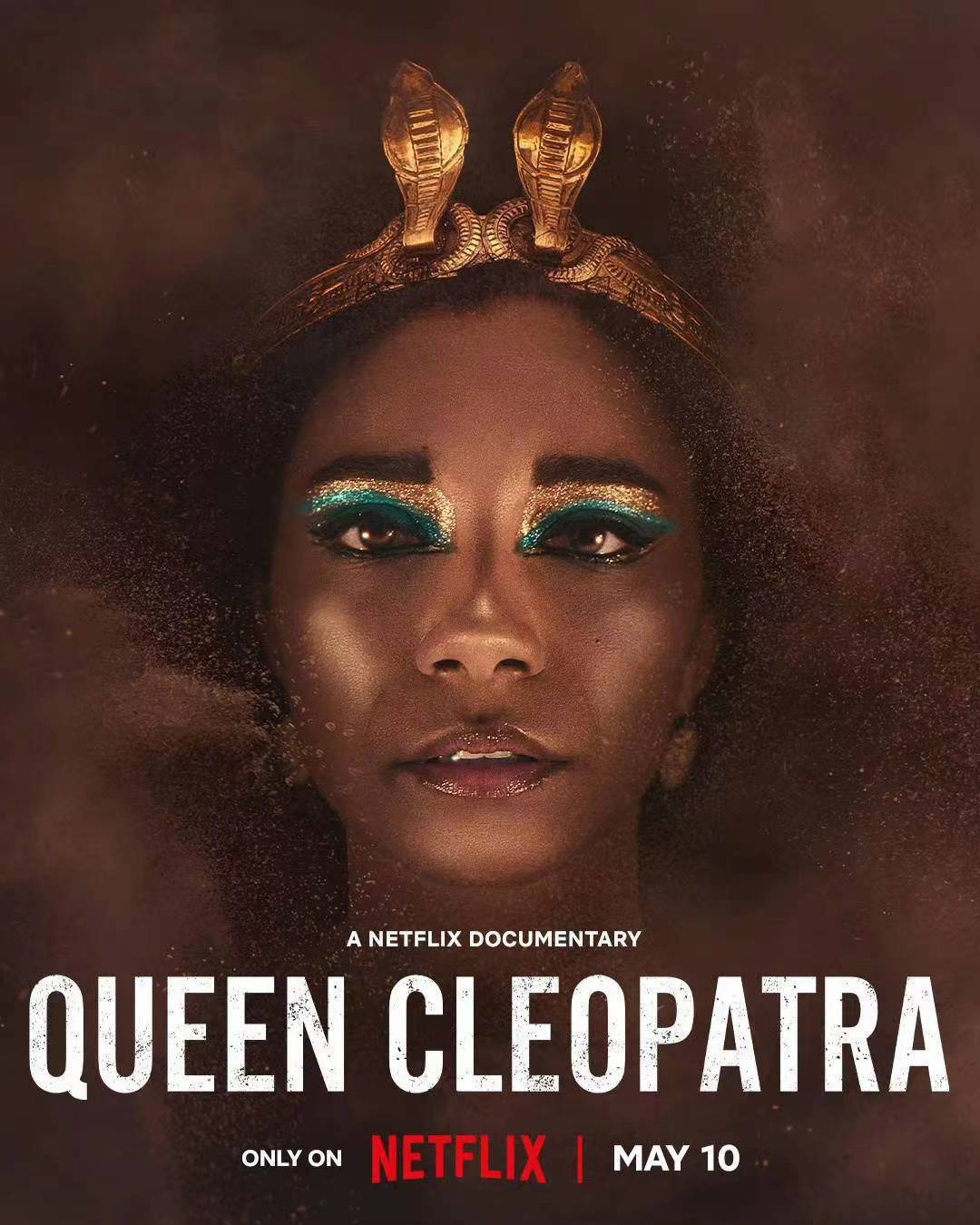
Netflix Cleopatra Poster
On April 27 local time, the Egyptian Ministry of Culture and Tourism posted a long article on its official website, reiterating with detailed graphic evidence that Cleopatra had "light skin and Greek facial features" in history, and This point has already been confirmed by a large number of experts, and it is indeed an irrefutable historical fact. "All kinds of reliefs and sculptures that have survived to this day are evidence."
New documentary series aims to subvert common sense
It is reported that in this documentary series that will be launched on the Netflix platform on May 10, a large amount of space will be shot in the way of scene reproduction, and the person in charge of playing the protagonist Cleopatra VII, Queen of Egypt, is from the United Kingdom. The mixed-race actress Adele James (Adele James) with black ancestry. In mid-April, the trailer for the film was released for the first time, and immediately aroused a lot of controversy, among which the response from the Queen's homeland, Egypt, was the most intense.
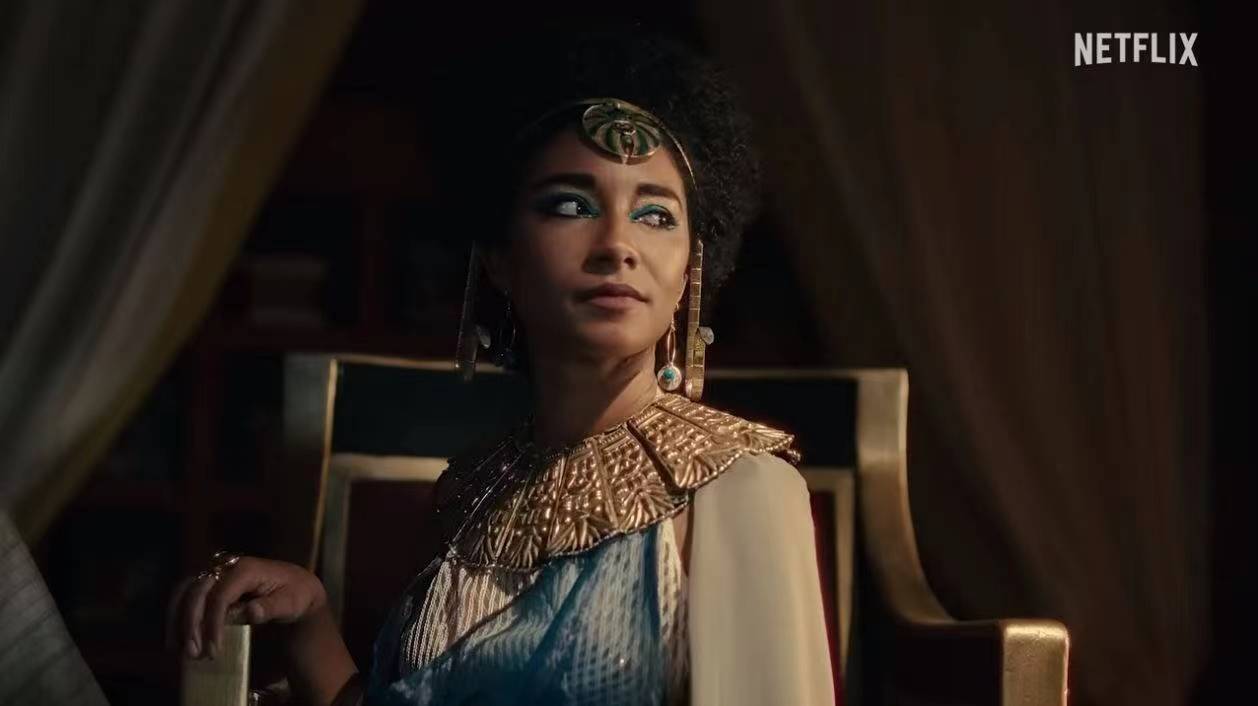
Adele James as Cleopatra
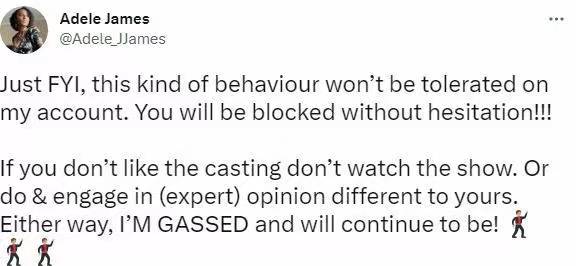
Adele James responds to controversy: 'If you don't like it, don't watch it'
In the latest long article posted by the Egyptian Ministry of Culture and Tourism, Mostafa Waziri, Secretary-General of the Egyptian Antiquities Committee, seriously stated that this practice of using black people to interpret Cleopatra is tantamount to " The random fabrication of Egyptian history is a blatant man-made historical fallacy." Moreover, Wazili emphasized that his statement absolutely does not mean any racial discrimination. It is purely based on facts and history. "After all, this work claims to be a documentary rather than a feature film. Since it is a documentary, there is an obligation to verify the historical facts. It must rely on historical and scientific facts to ensure that history and civilization are not falsified."
In addition, the 75-year-old Egyptian archeology expert Zahi Hawass (Zahi Hawass) also said in an interview with the media that Cleopatra is unlikely to be of mixed race. "This is pure fiction. Cleopatra was Greek, which means she must be light-skinned and cannot be black." Hawass, who is well-known in the academic circle for many important archaeological discoveries, said so.
Since archaeologists think so, the folks are even more outraged. Egyptian lawyer Mahmoud al-Semary (Mahmoud al-Semary) has submitted a protest letter to Egypt's Supreme Prosecutor, demanding that the government block Netflix on the grounds of violating the country's media law. Congressman Saboura al-Sayyed (Saboura al-Sayyed) also called on the government to ban the Netflix platform to punish it for insulting Egypt's history. There are also two petitions launched by Egyptian netizens on the Internet, which have received more than 80,000 signatures. They asked Netflix not to launch this controversial work that tampered with history, and they have begun to spontaneously boycott the use of Netflix services.
The historical Cleopatra was born in Alexandria, Egypt in 69 BC. According to historical records, her father was Ptolemy XII, and she was a Macedonian by blood, but the key lies in the lack of clear records of her mother's identity, which caused the current dispute. Of course, in the past hundreds of years, the academic circle generally believed that her parents were probably brothers, sisters or cousins, so both parents were Macedonians. Only in recent decades, as critical race theory in the United States has become a prominent science, more and more professional scholars or folk people have gradually begun to question whether the queen of Egypt may also be black or mixed race.
However, for the vast majority of ordinary people, the understanding of this legendary figure basically comes from various film and television works, and its actors include Elizabeth Taylor, Vivien Leigh, Sophia Loren and Monica Bellou. Including Qi, they are basically white European and American women, so we naturally feel that Cleopatra must be white.
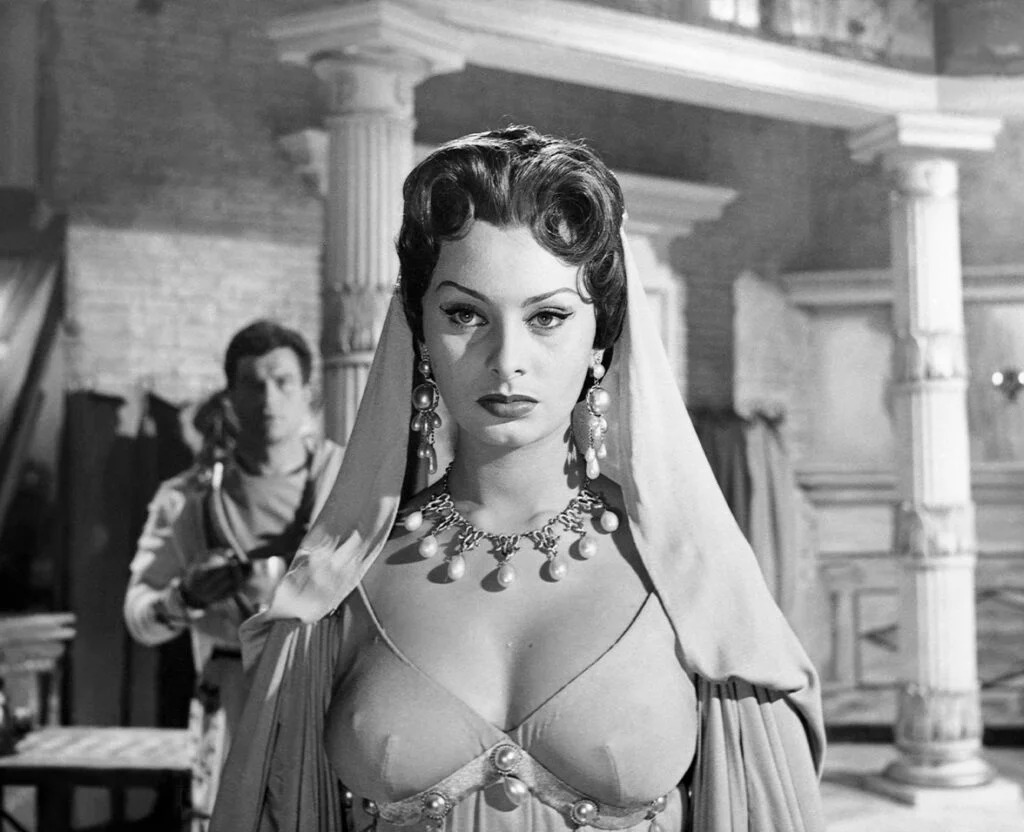
Cleopatra played by Sophia Loren
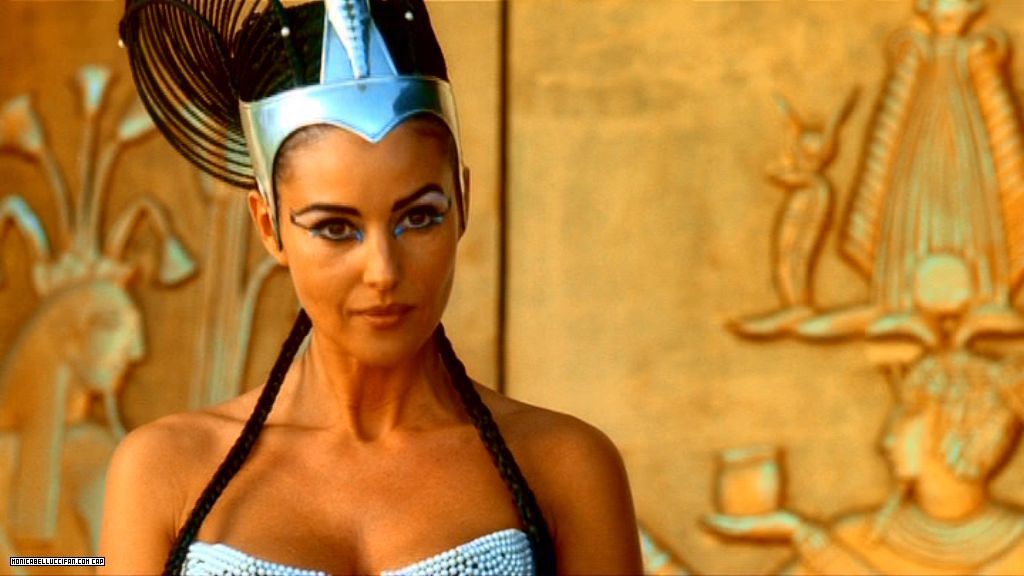
Cleopatra played by Monica Bellucci
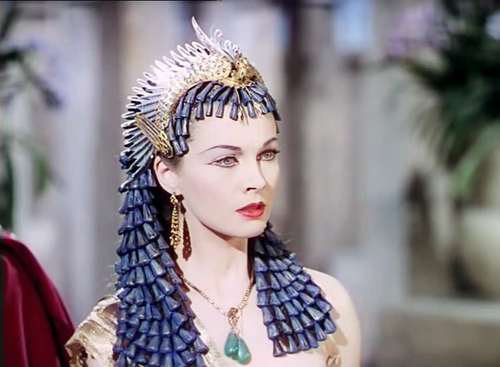
Cleopatra played by Vivien Leigh
Therefore, this Netflix documentary has the meaning of overturning common sense from the very beginning. The film was actually approved as early as the summer of the previous year, and was shot by the Westbrook film and television company of black movie stars Will Smith and Jada Pinkett Smith, who was also responsible for the narration of the documentary. The whole set of works is planned to be filmed in two seasons, and the theme is "African Queen". In addition to Cleopatra in the first season, the second season will film the relatively unknown Queen Nzingha Mbande.
In fact, as early as the year before the project was announced, Mrs. Smith's introduction was enough to explain her original intention and idea of participating in this series. "I am a mother of a young black woman myself, so it was very important to me that she was taught the history of these African queens from a young age. It was these African queens who made the success of generations of black women The foundation was laid, the way was paved."
Only Macedonian actors can play Cleopatra?
Interestingly, contrary to the so-called Netflix "washing black" Cleopatra this time, at the end of 2020, it was rumored that Israeli actress Gal Gadot was about to play Cleopatra. There have also been many protests on the Internet. What the protesters said at the time was that it was "whitewashing," that is, using white actors to play roles that should belong to Arab actresses or African-American actresses. And Gadot also responded unyieldingly at the time that Cleopatra in history was a Macedonian. If you really want to be loyal to history, you should let a Macedonian actress play it, not some Arab actress or actress. African American actress.
In the face of surging public opinion, Netflix also posted a public response from the producer on the official website on April 26. They emphasized that the focus of the work is not to tell about Cleopatra's skin color, but to show her as a woman. He also emphasized that top scholars and experts in the field were invited as consultants during the filming process, including Professor Shelley Haley (Professor Shelley Haley, majoring in Classics and African Studies at Hamilton College in the United States) and Cleopatra Dr. Sally-Ann Ashton (Dr. Sally-Ann Ashton) from the University of Cambridge.
It is worth mentioning that as early as 15 years ago, this Sally-Ann Ashton had proposed that Cleopatra was definitely not white, and also used computer modeling to create the so-called The 3D image of Cleopatra - it is claimed to be integrated on the basis of hundreds of existing Cleopatra cultural relics (including coins, sculptures, portraits), but it is basically the image of a mixed-race black.
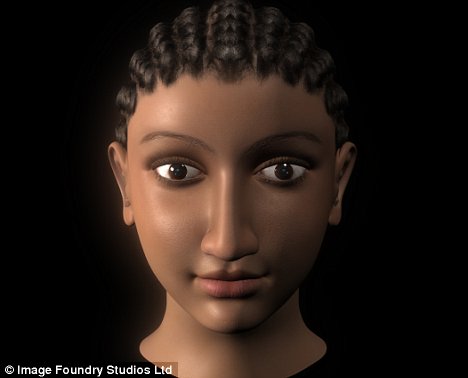
3D Cleopatra made by Cambridge University Ph.D. Sally-Ann Ashton
If Netflix's official reply is somewhat muddy and tai chi, then the response from the director of the film, Tina Gharavi, is much more direct. The Iranian-American female director wrote an article for the film and television entertainment media "Variety Show" last week in response to outside criticism. She asked without hesitation: "Why can't Cleopatra be black? Why are there some people who want to make Cleopatra white? Is it because the whiter her complexion, the lower her social status?" The higher it is, the more it will make some Egyptians feel serious?"
The director recalled that he was very fascinated after watching Elizabeth Taylor's "Cleopatra" when he was a child, but at the same time he also had doubts, whether the historical Cleopatra was really that white? "So, this time I also want to try, can I find the answer through this documentary, who is her ancestor? Maybe, I can break Hollywood's traditional views on this issue. After all, Is Cleopatra black? We don’t have a 100% sure answer. All we know is that she must not be as white as Elizabeth Taylor,” she concluded.
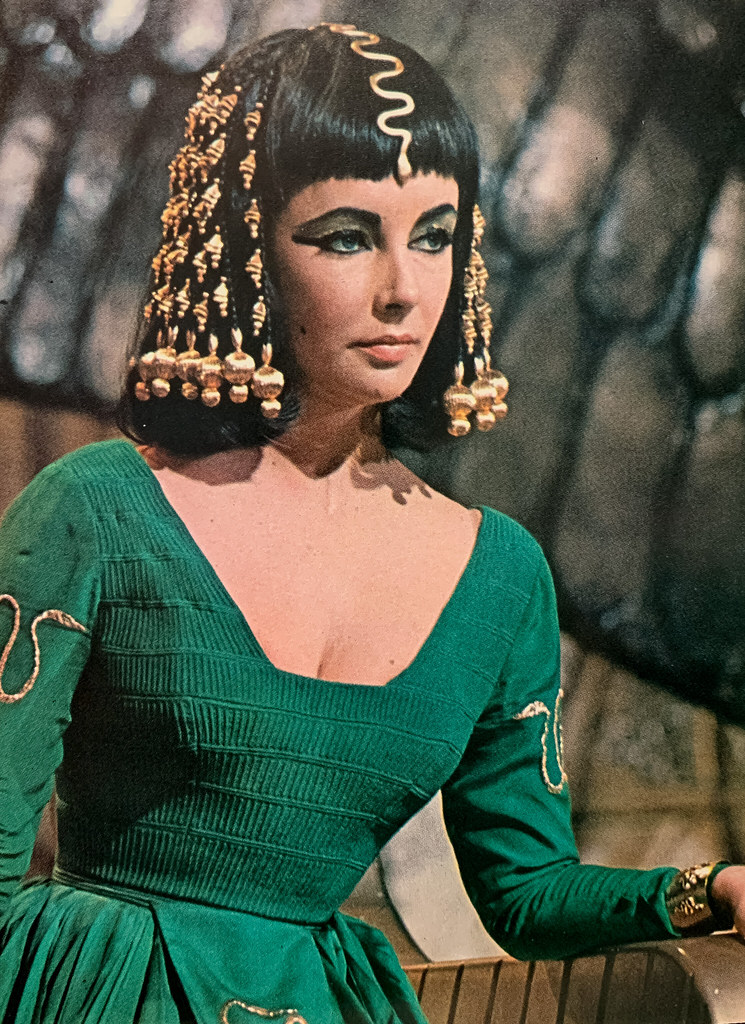
Cleopatra played by Elizabeth Taylor
Finally, with regard to the views of both sides, some experts have taken a seemingly pertinent position, pointing out that the opinions of the two opposing parties do not conform to the ancients’ views on racial origin, but are reinterpreting history with the narrow concept of modern people. The debate is an "ahistorical" debate. However, there are also critics who believe that this view itself falls into the trap of "non-historical", because it is true that ancient human society did not have the concept of modern race, but it is specific to what an ancient person looked like, whether his hair was straight or curly, and his skin color Whether it is black or white is another matter.


